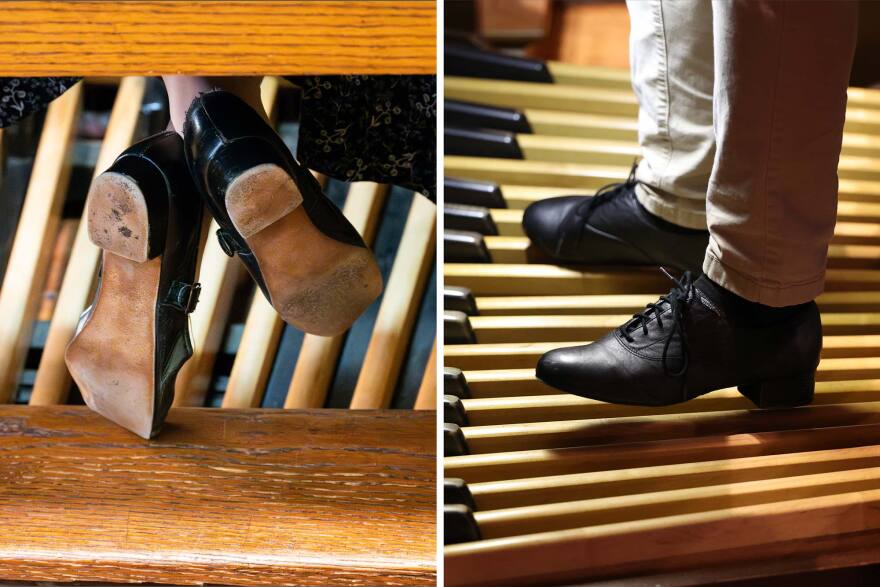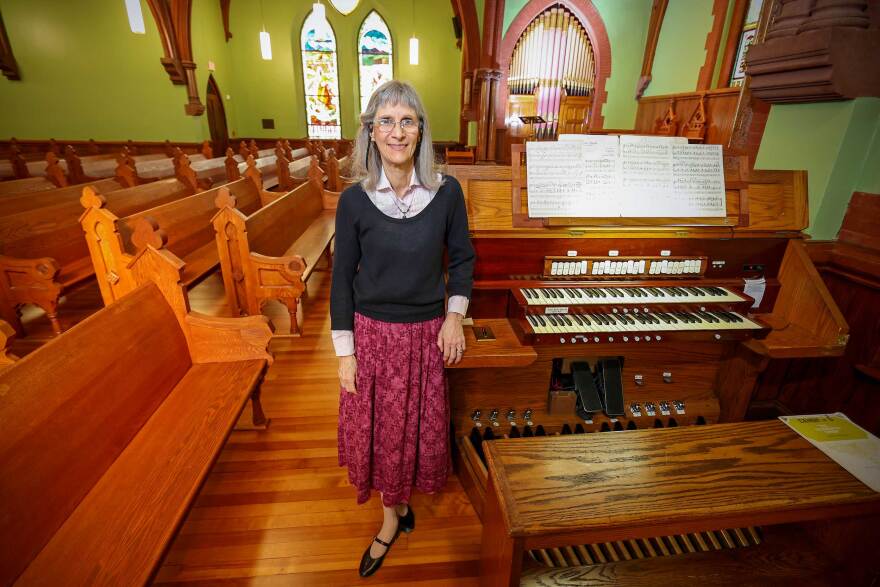The bridal chorus was composed for a 19th century opera by Wagner and became a standard for American weddings, but organist Barbara Taylor Moore says it wasn’t meant for happy occasions.
“In the original opera, a virgin was being married to a god and was going to be sacrificed. Wagner’s daughter was horrified when she came to America and found us using it for Christian weddings.”
These days, she says, most brides choose some other piece of music to accompany their march to the alter – some pretty unusual – like the bride named Jeanie who, of course, requested I Dream of Jeanie with the Light Brown Hair, or this quirky piece of popular music from Britain.
Sometimes Moore refuses special requests. She says certain songs are just not meant for the organ, but she usually tries – like when a bride requested an Erik Satie piece composed for the piano.
“I thought, ‘Well, it’s got a low note and a chord and a melody. Why couldn’t I make that work? Play a low note on the pedal, play the chord with the left hand and the tune with the right hand,’ and so I tried a little of it, and it was beautiful.”
And complicated. The chapel’s organ has one keyboard for the right hand, a second for the left and a third – the pedal board --played with the feet.

“The organ is the only instrument that can actually play a trio with itself," Moore notes.
And then there are stops – knobs or buttons that control the flow of compressed air to various pipes, changing the volume, tone and quality of the music.
“I can make the string sound sort of shimmery, and I can make it an octave higher," she explains, demonstrating each move. "Then this thing – with the Roman numeral on it – actually plays three sets of pipes at once.”
Like I said – complicated.
“It’s not by accident that they called it the King of Instruments," Moore exclaims.
She began studying piano at the age of 6, started lessons on her church organ at 14 and played her first wedding at 16. Since then she has carefully recorded notes for about 700 nuptials. Most have gone smoothly, but occasionally someone causes an unexpected delay.
“The ring-bearer – everybody is in, and he decides he has to go to the bathroom or the bride who stepped on her veil and pulled it off.”
But, in the end, everything’s okay.
“I think it is. They’re just as married," she reasons.
And despite its complexity, Moore says she’s loved playing the organ and sharing what she knows as an adjunct professor at UVA and a private teacher.
“We are anxious to get more young people interested, and it’s a fascinating instrument. It’s demanding, but it’s worth it!”


